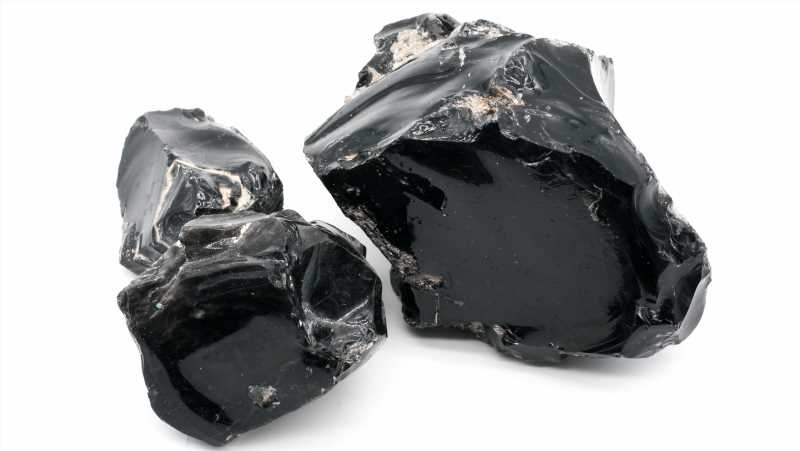Shilajit has been utilized as a revitalizing material in traditional Ayurvedic therapy. It helps to provide health benefits, including boosting bone health and healing a variety of disorders.
Table of Contents
Shilajit and Bone Health: Can This Ancient Remedy Help in the Maintenance of Healthy Bones?
Shilajit Origins and Structure
Natural cures and traditional medicines have gained popularity in recent years as a means of improving overall health and well-being. Shilajit, a resinous substance found in the Himalayas and other hilly areas, has grown in popularity due to its possible health advantages.
Shilajit is a sticky, tar-like material that oozes from rocks at high elevations. It is generated over hundreds of years as a result of the decomposition of plant materials, minerals, and microbial activity. Shilajit is made up of a complex blend of organic molecules such as fulvic acid, humic acid, minerals, trace elements, and other bioactive ingredients.
Relationship Between Shilajit and Bone Health
Osteoporosis and Bone Health
Osteoporosis is a prevalent disorder that causes weaker bones that are more prone to fractures. Maintaining adequate bone health is essential for avoiding osteoporosis and its repercussions. A balanced diet, enough calcium intake, vitamin D, and regular exercise are all necessary for strong bones.
Shilajit’s Potential Bone Health Benefits
Despite the fact that scientific study of Shilajit’s impact on bone health is limited, preliminary studies reveal numerous potential benefits:
- Mineralization: Shilajit is high in minerals such as calcium, magnesium, and potassium, all of which are necessary for bone strength and density. These minerals are essential for bone structure maintenance and preventing mineral shortages that can weaken bones.
- Anti-inflammatory properties: Bone loss might be exacerbated by chronic inflammation. Shilajit’s anti-inflammatory characteristics may aid in the reduction of inflammation in bones and joints, potentially preventing bone deterioration.
- Antioxidant activity: Shilajit includes antioxidants that can neutralize free radicals that can damage bone cells and cause bone loss. Shilajit may help maintain bone health by lowering oxidative stress.
- Synthesis of collagen: Collagen is a structural protein found in bones that provides strength and flexibility. Shilajit may promote healthy bone growth and repair by stimulating collagen synthesis.
Evidence of Support
Animal Research
Several animal studies have yielded encouraging results in terms of Shilajit’s potential advantages for bone health. Shilajit treatment boosted bone density and bone strength in rats in one study. Shilajit also reduced bone loss in animals with osteoporosis-like circumstances, according to another study.
Human Research
Shilajit’s effects on bone health have received little attention in human investigations. A tiny clinical investigation with postmenopausal women, on the other hand, discovered that Shilajit administration enhanced bone mineral density when compared to a placebo group. More study is required to validate these findings and discover the best dosages.
Precautions and Considerations
Sourcing and Quality
Shilajit’s quality and source are critical, as with any natural medicine. To maintain purity and eliminate any contamination, authentic Shilajit should be acquired from recognized providers.
Individual Differences
It’s vital to note that everyone’s reaction to Shilajit will be different. Age, overall health, pre-existing medical issues, and pharmaceutical use can all have an impact on its effectiveness. Before beginning any new supplement, it is best to consult with a healthcare practitioner.
Possible Side Effects
Shilajit is generally regarded as safe when used in moderation. However, some people may develop negative effects such as stomach pain, allergic reactions, or drug interactions. It is best to begin with a modest dose and watch for any unwanted responses.
Shilajit In Ayurveda Medicine
Shilajit has been utilized in Ayurvedic medicine for millennia to treat a number of health issues, including bone and joint health, energy and vitality, and overall well-being. Its high mineral concentration promotes the body’s natural functioning, and its anti-inflammatory characteristics may aid in inflammation reduction and healing. The bones are constantly remodeling, with old bone tissue being broken down and new tissue being produced. This process is regulated by a number of hormones and nutrients, including calcium, vitamin D, and magnesium. A lack of essential nutrients can result in weakening bones, raising the risk of fractures and osteoporosis.
Minerals & Trace Elements
Shilajit contains a variety of minerals and trace elements that are vital for bone health. Calcium, magnesium, zinc, and copper are all important minerals in shilajit and play important roles in bone production and maintenance. Shilajit administration enhanced bone density in rats, according to one study published in the Journal of Medicinal Food. The researchers did point out, however, that the calcium and magnesium in shilajit were most likely to blame for this effect.
Fulvic acid has been shown to increase nutritional absorption and use in the body, particularly mineral absorption. This indicates that the minerals in shilajit may be absorbed and utilized more quickly by the bones.
Shilajit’s Contribution to Bone and Muscle Recovery
Repeated use, sudden or continual strain, accidents, overexertion, a sedentary lifestyle, and aging are all factors that can cause bone and muscle injury.
The problems may compound to induce immobility and a restricted range of motion. Pain is frequently the first indication of tissue injury. The RICE (Rest, Ice, Compression, and Elevation) Method may aid in speedier recovery and healing. Changing one’s diet, on the other hand, can help the body repair itself. Food categories high in vitamins A, C, and E, protein, calcium, and Omega-3 fatty acids are beneficial to bone and muscle health. Nutrient requirements for an injured or elderly individual cannot be met only through food sources. Supplementation is usually both essential and beneficial.
How Does Shilajit Help Bones and Muscles?
Shilajit resin contains anti-inflammatory, adaptogenic, and immunomodulatory effects. These encourage speedier muscle and bone repair and regeneration. Pure shilajit boosts nutritional bioavailability. This allows the body to better absorb vitamins and minerals from your diet. As a result, these enhanced processes aid in the healing of your injuries. This will be beneficial to shattered bones as well.
Shilajit can help with recovery from bone fractures or muscle exhaustion in the following ways:
- Shilajit contains more than 85 minerals. Shilajit has qualities that support strong bones and muscles when combined with humic and fulvic acids.
- Fulvic acid has a lot of oxygen, which can dissolve in your blood. It relaxes weary muscles that are experiencing a sudden and quick drop in blood oxygen levels. This could happen during a strenuous workout.
- It is also a powerful antioxidant. Antioxidants help fight against free radicals. If not neutralized, free radicals cause cell damage, which can lead to bone, muscle, and other tissue deterioration.
- Shilajit contains humic acid and iron, which can help prevent muscle weariness. These can also help with recovery after stressful or vigorous activity. If you exercise often, you will be able to execute more intensive workouts. You can do more repetitions for longer periods of time without becoming exhausted.
- Because of its surfactant properties, it is also a very efficient carrier of nutrients and other useful substances. It can transport oxygen, calcium, and magnesium, all of which aid in the repair of damaged tissues. Shilajit helps to build stronger bones and muscles.
Can shilajit help with osteoporosis management? Does it aid in cartilage regeneration?
In general, it is unclear whether shilajit has any effect on human health. Despite centuries of widespread use in various regions of the world, scientific evidence supporting mumie, mumio, or moomiyo—other names for shilajit—iis just now beginning to accumulate. In recent years, there has been an increase in research on its healing properties. More data suggests that it may play a role in tissue repair and regeneration. It has also been demonstrated to boost nutrient bioavailability in the body. Its beneficial effects on stress management and stress recovery are extensively recognized.
According to one study, taking shilajit orally boosted 17 extracellular matrix components. These ECM components act as the tissue building blocks required to heal bone and muscle wear and tear. Collagen and elastin are components of the ECM. Improvements were seen after only 16 weeks of constant oral shilajit administration. For the first eight weeks, I only took the supplement. The final four weeks paired the same supplement dose with exercise.
Conclusion
While Shilajit appears to be beneficial to bone health, additional research is needed to determine its efficacy and appropriate use. As with any supplement, it should be used carefully and in consultation with a healthcare practitioner. A balanced diet, frequent exercise, and other established bone health methods are critical.


